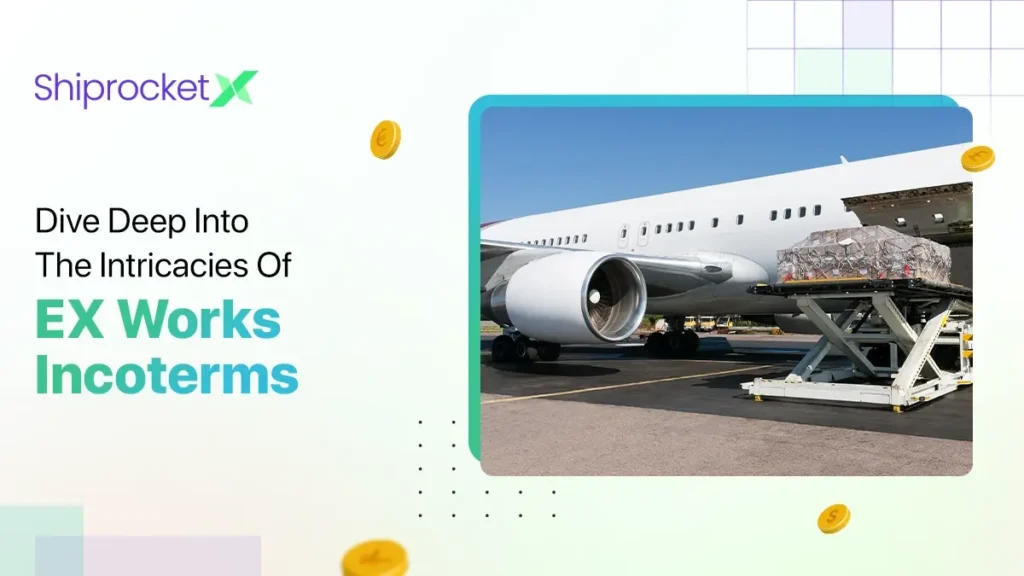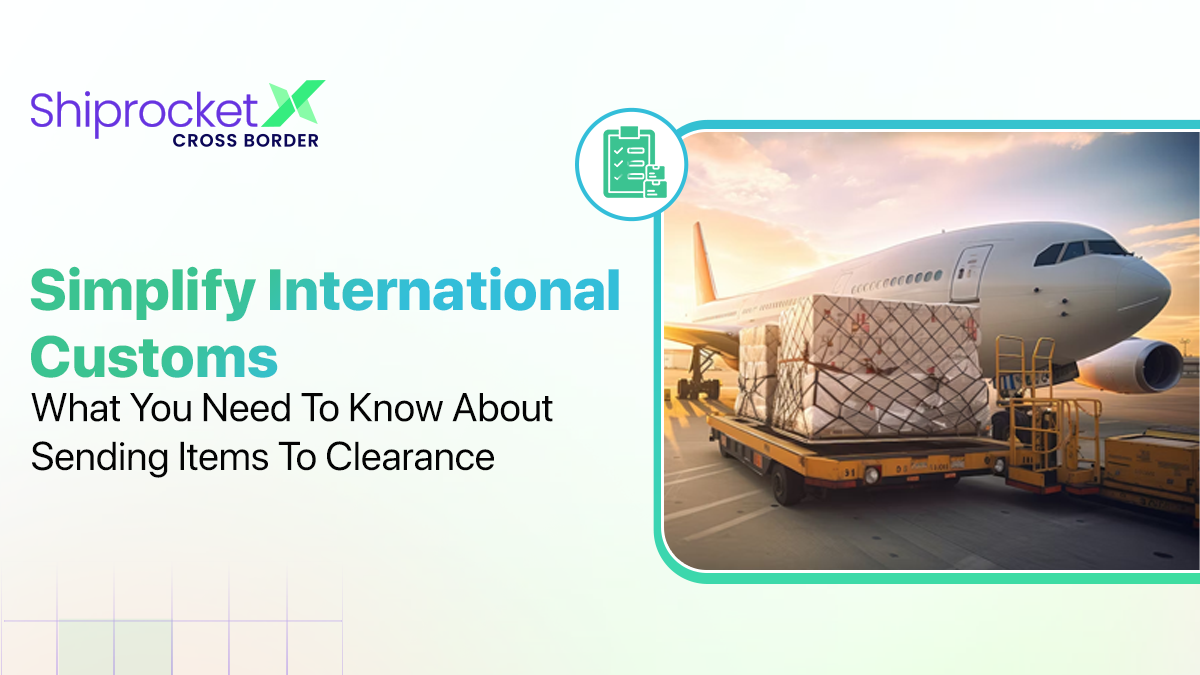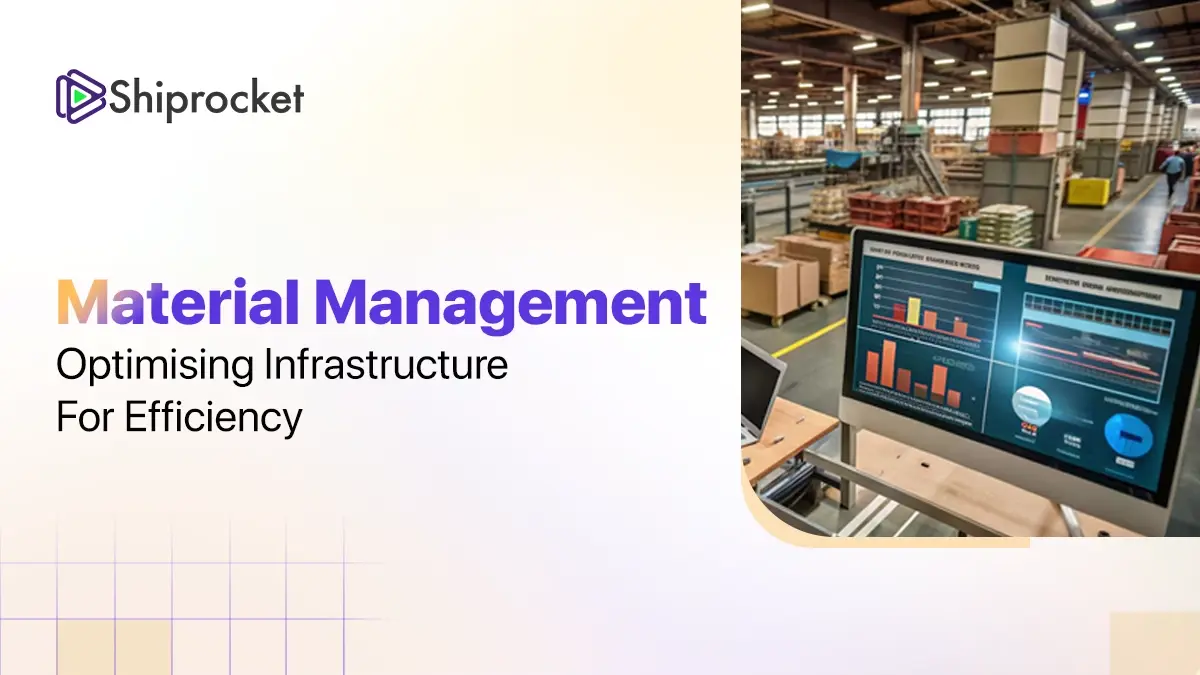EX Works Incoterms: Meaning, Roles, and Pros & Cons
International and domestic trade terms, commonly referred to as Incoterms, consist of eleven delivery clauses, including the EX Works Incoterms. Specifically, four of these clauses find application solely in sea freight. Generally, the export and import companies opt for trade terms authorized by the International Chamber of Commerce (ICC).
A trade term serves as a component of a commercial contract between the seller and buyer. When used accurately, these terms enhance logistics, mitigate risks, and yield cost savings for the involved companies. Successful transportation lays a firm foundation for ongoing business transactions.
Within a trade term, there exists an agreement delineating the tasks, costs, and risks associated with delivery. These rules function as delivery contracts and define the allocation of costs between the buyer and seller. Moreover, trade terms specify which party is responsible for covering shipping damages, essentially determining the party under whose insurance the shipment falls. The definition of export/import declaration is encompassed within trade terms, typically placing the liability on the seller.
Additionally, the parties must negotiate the required documentation, such as CMR, Bill of Lading, certificate of origin, and other relevant documents. Packing, notification, and supervision are integral components of trade terms, with these responsibilities often falling on the seller due to their influence over these matters. The concept of a trade term comprises nine distinct variables, encompassing all shipping-related contracts and rules. The rule comes into effect when the product is packed and remains applicable until the agreed-upon endpoint, which may occur at the seller’s door or, at the latest, the buyer’s door.
The globally recognized delivery terms are called Incoterms. The most recent version of this is Incoterm 2010, which got some amendments in 2011. Widely adopted and understood, Incoterm rules play a crucial role in facilitating trade between nations, offering clarity on obligations and risks between sellers and buyers.

Meaning of EX Works in Shipping
EX Works Incoterms stands as a contractual agreement that places the onus of risk and responsibility squarely on the buyer. In essence, the seller’s obligation in EX Works Incoterms is limited to making the goods available for the buyer at their designated warehouse or dock. Following the buyer’s collection of the cargo, the mantle of responsibility shifts entirely to him, encompassing the transport to the designated port of arrival.
Ex Works Incoterms serve as the designated Incoterm for all shipping scenarios, irrespective of the transportation mode or legs involved. Operating under this term necessitates the buyer to shoulder the entire spectrum of shipment responsibilities immediately after the cargo is securely packed in export packaging and collected.
Under the EX Works Incoterms, the buyer assumes the intricate tasks of arranging transportation, managing export documentation, covering all associated freight charges, and overseeing the import and delivery processes. The pivotal moment when they acquire goods from the seller’s premises marks the risk transfer to the buyer.
This form of transportation strategy places the entirety of risk and responsibility squarely on the buyer’s shoulders. Consequently, individuals new to exporting and buyers unfamiliar with the intricacies must enlist the services of a logistics company. This precautionary measure is recommended to mitigate errors and unforeseen costs that may arise during shipping and transporting the goods under the EX Works Incoterms.
Sellers’ Responsibilities in EX Works
Under the EX Works Incoterms, the seller’s role is minimal. They mainly need to make sure the cargo is well-packed for export and ready for the buyer to pick up at their location. Typically, this involves packing the goods into export cartons. Once the cargo is good to go, it needs to be in a spot where the buyer can easily access it.
Buyers’ Responsibilities in EX Works
The buyer takes care of all the risks and responsibilities after picking up the goods from the seller. Here’s the rundown of the duties of a buyer in an Ex Works Incoterms contract:
- Get the cargo loaded at the pickup location so it can make its way to the port for export.
- Transporting the goods to the starting port to kick off the export process
- Deal with all the export paperwork and handle any duties required for exporting the cargo. The buyer needs to figure out their export methods.
- Covering all the fees at the terminal or port
- Taking charge of loading the cargo onto the carriage
- Handling all the costs for moving the cargo from port to port
- Getting insurance to protect the cargo from damage, theft, or loss, if needed or decided upon while signing the contract with the seller.
- Managing all charges from the destination port and terminal. When the cargo arrives, there are fees for unloading the shipment from the vessel and transferring it around the harbor.
- Covering the costs of getting the cargo from the destination port to its final stop
- Taking care of the expenses tied to unloading the cargo from the final carrier once it reaches the destination
- Handling all the import duties and taxes connected with bringing the cargo into the destination country.
Benefits and Drawbacks of EX Works For the Buyer
Benefits
In specific scenarios, EX Works Incoterms emerge as the most pragmatic solution for shipping products. For instance, businesses engaged in regular purchases from a single country can capitalize on EX Works Incoterms when intending to consolidate products from various suppliers. In this scenario, EX Works Incoterms proves advantageous as it facilitates the export of the cargo as a unified shipment.
Another benefit arises when buyers desire to maintain the confidentiality of their suppliers. Opting for EX Works Incoterms allows them to ship under this arrangement and utilize a distinct exporter’s name on the shipping documents.
Considering the cost of product acquisition, EX Works Incoterms typically stands out as the most economical option. There are instances where sellers might secure a tax return on exported products. In cases where sellers heavily rely on this refund for profitability, FOB may potentially emerge as a more cost-effective option for both the buyer and the seller. However, in the majority of cases, EX Works Incoterms remain the most budget-friendly choice, demanding minimal additional effort from the seller.
For companies engaged in consistent purchases from a particular country and holding an export license, EX Works Incoterms can be an optimal choice. It’s worth noting that the associated risks with EX Works Incoterms can be substantial, so buyers must entrust a reliable company to handle all aspects on their behalf.
When a seller lacks the capability to export, the EX Works arrangement enables international buyers to make purchases in the domestic market and rely on their methods of export.
A multitude of manufacturers exclusively focus on producing high-quality goods for the local market and neglect to obtain export licenses or market their products globally. For astute sources, identifying these factories allows them to leverage local pricing advantages and enter into purchase contracts under EX Works Incoterms.
Drawbacks
While the appeal of EX Works incoterms to a buyer may lie in its lower unit cost compared to other Incoterms, the corresponding disadvantages for the buyer are notably significant.
Primarily, the buyer bears the responsibility for all risks and expenses related to the export, transportation, and import of the cargo. Most International Commercial Trade Agreements allocate some degree of responsibility for these processes, with EX Works Incoterms being the sole term that absolves the seller from the tasks of loading, delivering, and exporting the cargo to the terminal.
The act of loading the goods, delivering them to the origin terminal, and exporting the goods isn’t risky when dealing with a reputable seller. However, as these tasks are executed in the seller’s country rather than the buyer’s, any issues that arise must be addressed by a qualified partner. In situations where the cargo faces obstacles in being exported from the origin country, the risk falls on the buyer, as the transfer of possession has already occurred.
Furthermore, if a buyer lacks clarity on the export process or associated costs, choosing EX Works Incoterms could result in them having to pay more than initially intended. If the supplier insists on using EX Works Incoterms, the optimal solution for a buyer is to seek assistance from a third-party logistics company or freight forwarder.
When Should Businesses Opt for an EX Works Agreement?
Many businesses choose the EX Works Incoterms agreement when the seller is unable to handle the export process or the buyer aims to consolidate multiple shipments for export under a unified identity.
Another scenario prompting a buyer to favor EX Works incoterms is opting for Air Express shipping. Express courier services typically retrieve the cargo directly from the seller’s location, encompassing all transport and export formalities within their service. Consequently, buyers opting for express shipments might discover cost savings by transitioning to EX Works incoterms.
In alternative situations, well-established importers might establish offices in their export country to streamline their shipment processing. However, only if a valid reason exists for a buyer to select EX Works Incoterms, will the most experienced sellers in international trade provide quotes based on different Incoterms.
Conclusion
Named Place of Delivery (EXW) – EX Works Incoterms, which encompasses minimal responsibilities for the seller, places the onus on the buyer for all transportation costs and insurance. It confines the duty to make the goods available to the buyer at a specified location on the seller’s premises, which could be a factory or warehouse. Notably, the Ex Works Incoterms clause does not compel the seller to load the goods, with all associated costs and risks falling on the buyer during loading. Typically, businesses choose this clause when the product lies in a location that does not have the seller’s loading equipment. However, the seller can load the material at the buyer’s risk and expense. Using the EX Works incoterms clause may, however, disadvantage the seller in terms of competitiveness. It may potentially create a negative perception of service levels for new customers, especially when competitors offer more favorable terms like CIP – Carriage Insurance paid.
While the EX Works incoterms clause mandates the seller to assist the buyer with export clearance, it does not require the seller to organize or maintain it. If obtaining export clearance becomes challenging for the buyer, it is advisable to explore alternative Incoterm clauses. Importantly, it does not obligate the buyer to furnish information crucial to the seller’s taxation and reporting needs. In cases where the seller requires such information, the seller must handle the export clearance. Despite being ideally suited for local trade, if one chooses the EX Works Incoterms clause in export trading, the seller must ensure that the buyer manages the export clearance. The modified clause ‘Ex Works cleared for exports’ emphasizes the seller’s responsibility to obtain export clearance, securing the Movement Reference Number (MRN).
Under EX Works incoterms, the buyer bears the responsibility for all import duties, taxes, and customs clearances. The EX Works Incoterms arrangement necessitates the buyer to manage every aspect of the export, freight, and import process. The sole obligation of the seller is limited to export packaging.
In an EX Works Incoterm shipment, the buyer shoulders all transportation charges and is tasked with collecting the goods directly from the seller. Conversely, in a FOB shipment, the seller takes on the responsibility for exporting and covering the costs related to loading the cargo onto the vessel. Once the cargo is loaded, the buyer assumes responsibility for all transportation costs post-loading.
To determine the pricing for EX Works Incoterms in shipping, the buyer assumes the responsibility for all associated costs, spanning the collection of cargo from the factory, inland shipping, exporting, importing, and transportation to the final destination. A comprehensive assessment of each leg of the journey is essential for an accurate cost calculation.





